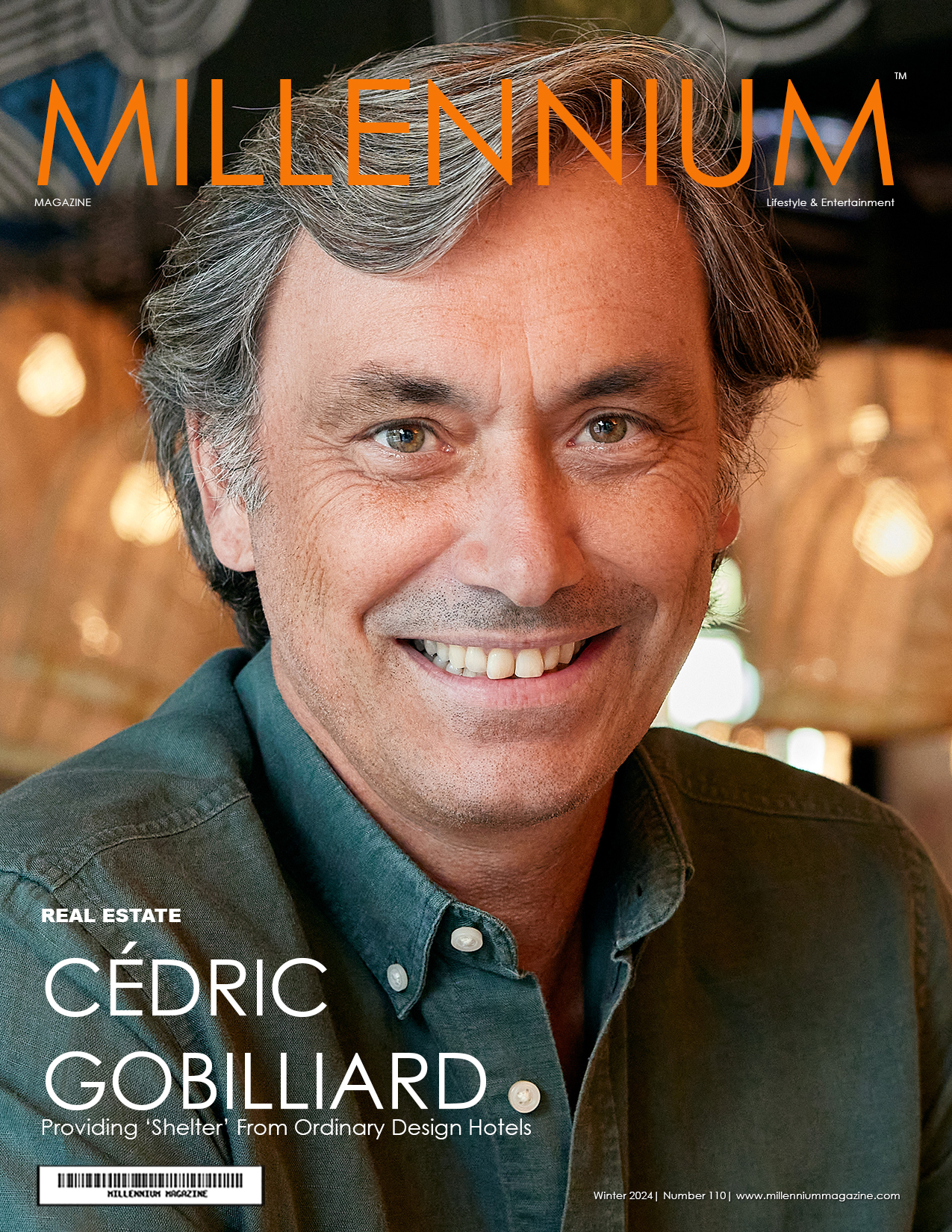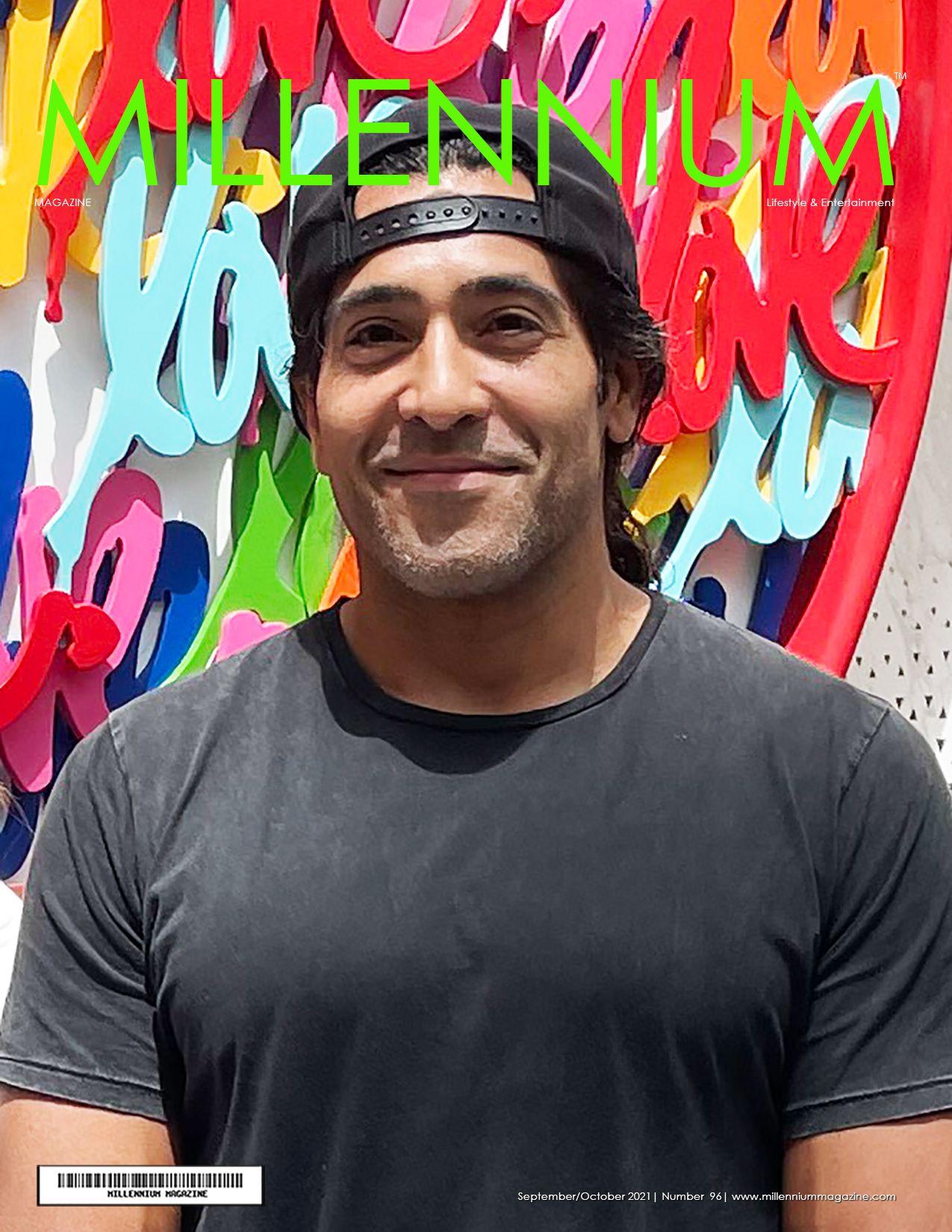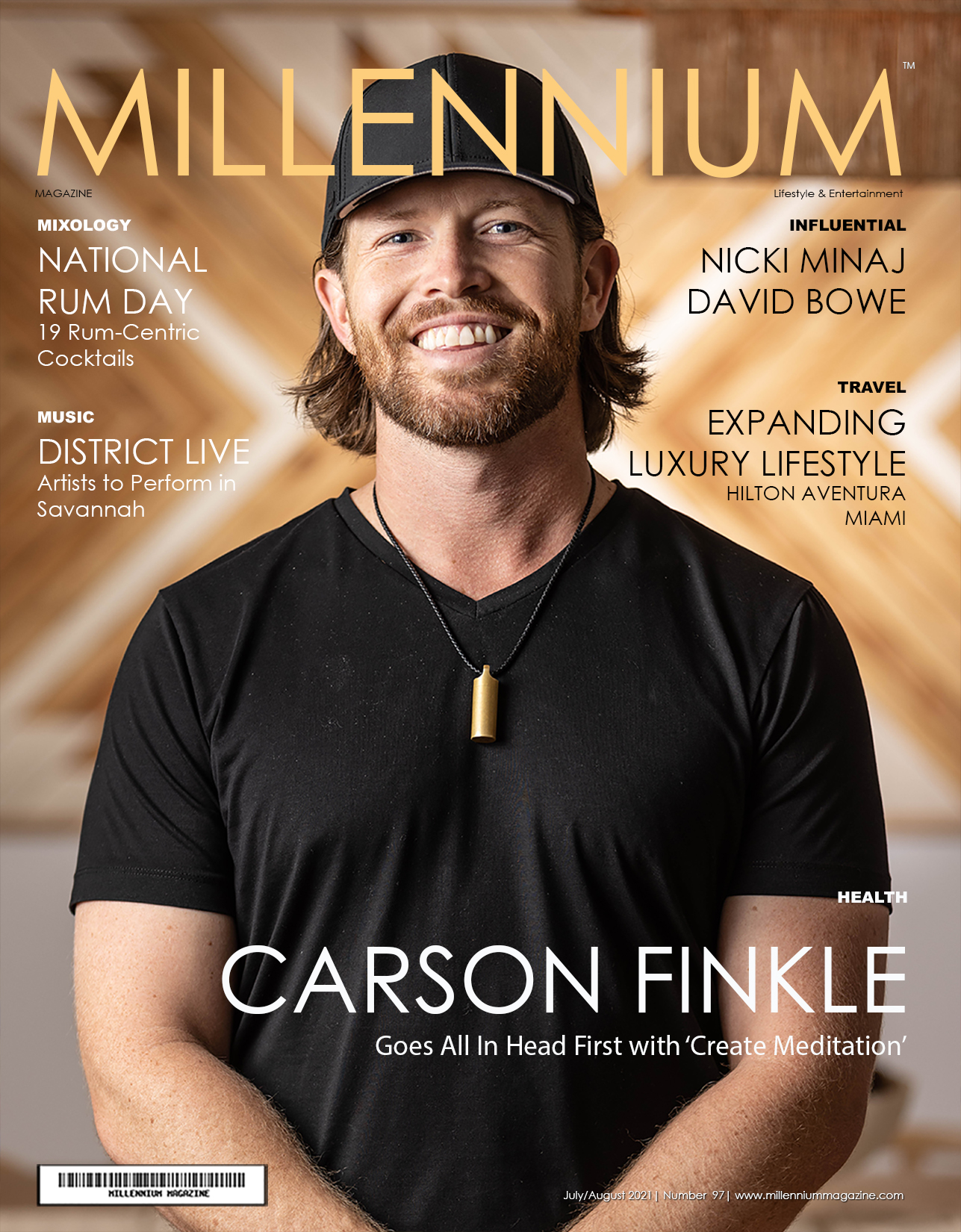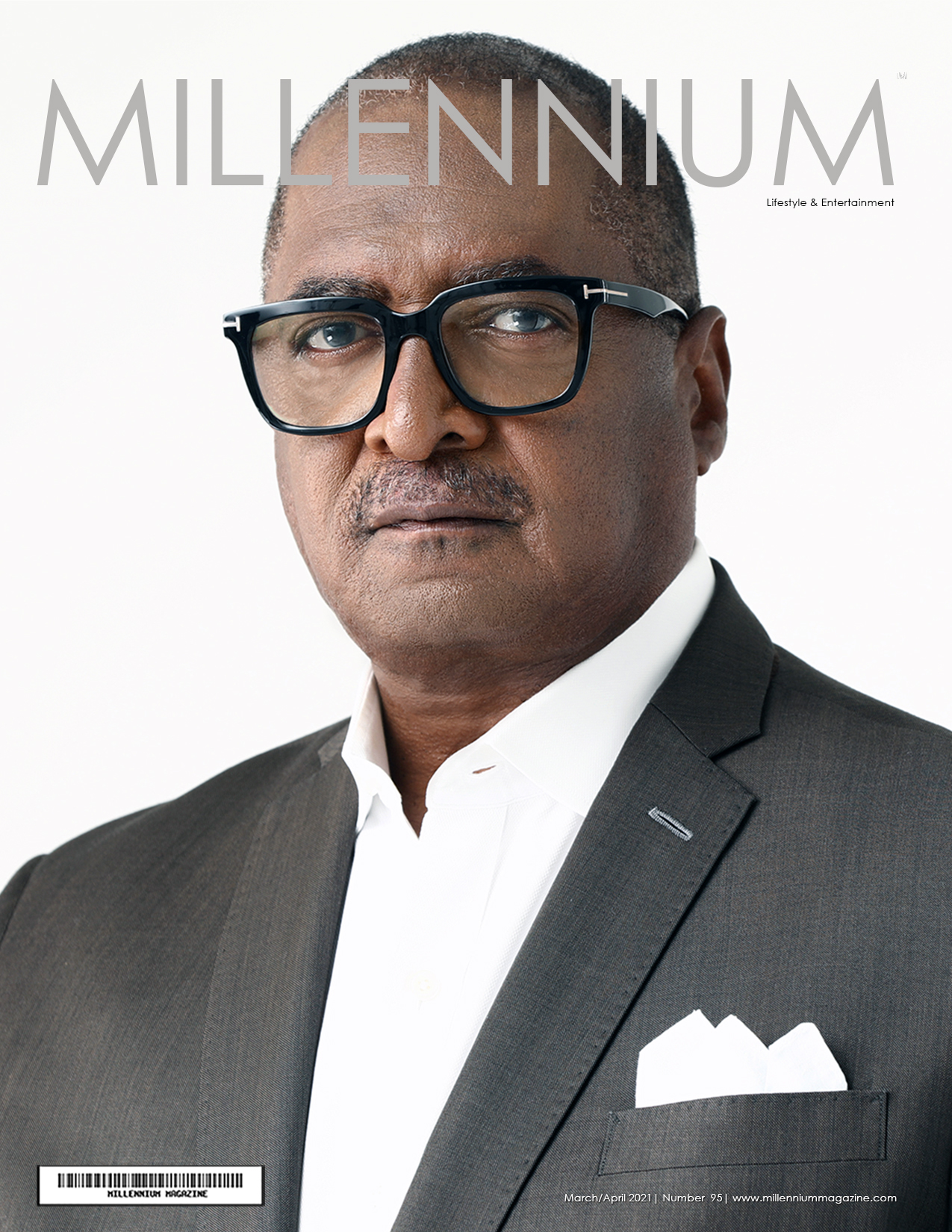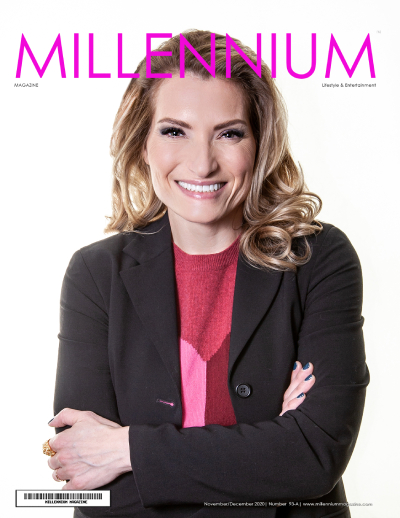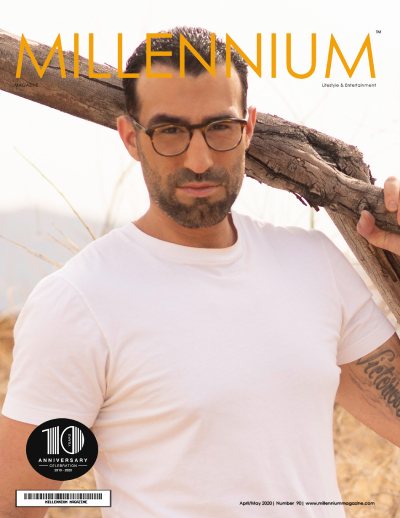Father-daughter duo Baima Duoji and Florence Li explain how they approach elevating luxury travel to new heights of enlightenment.
Shangri-La is a real place, and thanks to the novel “Lost Horizon” and its film iterations, it continues to capture the imagination of intrepid travelers throughout the world. With the establishment of Songstam (translated into English as “paradise”) in 2000 by Baima Duoji, the goal was not only to open the gates to Shangri-La and other remote areas, but also share the Tibetan culture he grew up in with foreigners and personalize the way they experience these one-of-a-kind destinations.

When Baima, an acclaimed Tibetan documentary filmmaker, pivoted to the role of Founder and Chairman of the Songtsam Group, he envisioned that its 16 authentic luxury properties across the most pristine areas of the Tibetan Plateau would go beyond curated environments, astute service, and refined interior design. Li, who serves as Director of International Business Development, explained at a recent Los Angeles presentation that every tour is a full-on, thoroughly customized immersion into the traditions, customs, nature, and histories of the areas expressly planned for each client or group.
“We are the only luxury collection of Tibetan-style retreats within the wellness space,” she said. “The concept of Tibetan meditation is built into each of them by combining physical and spiritual healing elements together in a sensory way. We really want to think of ourselves also as a tour company, since we work with our guests to curate their own experiences by combining stays at Songtsam various hotels and lodges with activities that present the region’s diverse culture, rich biodiversity, incredible scenic landscapes, and unique living heritage in a way that will be meaningful to them.”

Songtsam’s mission is to inspire guests to find a personal “Shangri-La” as they encounter diverse ethnic groups and cultures and gain a full understanding of how its inhabitants pursue and understand happiness. We followed up with a conversation with Baima and Li of how Songstam’s curated experiences transcend the usual “once-in-a-lifetime” travel trope into something that is more transformational.
What initially drew you into documentary filmmaking, and how did your years of experience parlay itself into the cohesive experience of a Songtsam tour?
Baima Duoji: I became a documentary filmmaker because I have always loved my hometown, Shangri-La, and I wanted to share our local culture, art, and beautiful scenery with more people through a documentary. Later, I created a unique Songtsam travel itinerary by connecting destination hotels, sharing local culture, art and natural beauty in a more immersive way, so that guests can get a more in-depth and unforgettable experience.
How has your past career/positions shaped how you approach your day-to-day work, and how are you planning to carry your father’s legacy forward?
Florence Li: My past experience in the hotel and tourism industry has enhanced my knowledge of global tourism and the hotel industry. This enables me to achieve cross-cultural communication in my work, and I believe that through our continuous efforts, Songtsam will become an influential international brand in the future. I have great confidence in Songtsam’s brand, because it is a business that is also a force for good. The motivation for my work comes from the land where we are, the people and culture on the land. I believe that through our efforts, we can bring about positive and sustainable changes in remote destinations. I also hope that our products can inspire guests, help more people open a door to think about other possibilities of life, and transform their way of life and their surroundings, so as to make the world a better place.
Describe the genesis of this approach.
FL: The village where Songtsam was born is called Kena, and provides the perfect example. Twenty years ago, Kena and its way of life were semi-agricultural and semi-pastoral. Twenty years later, the main industry here has been transformed into cultural tourism. Some people are employed in hotel services in Songtsam. Others provide us with artisanal food products, opened their Tibetan homes for visits (now a must-have experience for Songtsam guests), or opened bed-and-breakfast hotels. Through this process, many residents have become an integral part of the regional tourism industry. Kena, which has about 98 families and 421 people, there are 10 home-stays, three restaurants, 70 people working in hotels, and more than 60% of the villagers directly or indirectly involved in the tourism industry. In the past decade, we have set out to transform other villages in Yunnan like Hada Village in Tacheng, Gujiunong Village in Meili, Bairen Village in Benzilan, and other villages where a Songtsam property is located.
How does the acquisition and placement of different pieces and furnishings make a stay at one of the properties feel simultaneously luxuriant and home-y… Or as Florence said when in L.A., “like a living Museum”?
BD: I have collected various antique Himalayan artworks since the 1990s, including Tibetan carpets, Thangkas, Buddha statues, and decorative items. I believe that artwork is a deep reflection of the connection with the local culture, and the artwork reflects the way of production and life of the local people and their beliefs. I display some artworks in different spaces of the hotel with intention, so that guests can intuitively link with the local artworks, thereby arousing more curiosity and thinking about the local cultural history, and also stimulating more inspiration for guests.
What do the hotel food programs and food-related activities consist of, and how do they differ from what a guest may experience elsewhere?
FL: Songtsam provides guests with a wealth of dining options, including regional Yunnan and Tibetan local dishes and Western food. Some Songtsam hotels also have organic vegetable gardens, and there are many choices of seasonal dishes. We also take our guests into villages in remote mountainous areas and enter the homes of local people to participate in the production of local ingredients. For example, we go to Hada Village in Tacheng to grind tofu and pick yellow fruits to make jam. Guests can directly contact the unique local ingredients. Connecting with locals and learning to process in local traditional ways is a unique experience that we offer.


As the number of properties and experiences offered expands, what are the biggest challenges involved in balancing luxury and authenticity, as many conscientious travelers want to avoid things that may feel like cultural appropriation?
BD: In every detail of Songtsam Hotel properties, you feel immersed in local handicrafts, such as Tibetan carpets, handmade copper basins, handmade black pottery products, etc. I think luxury does not necessarily mean using rare materials, local Natural materials can also be a luxury. In the continuous expansion of the hotels, it is more important to maintain the tonality of Songtsam. We are not trying to make products at the top of the pyramid, but to present them in a natural way, depicting Songtsam’s relationship with nature, local culture, and the land of mountains. Genuine connections and relationships are built when sharing the culture in such an inclusive and respectful way.
What are some special tours/activities for families and corporate retreats? Why are these a significant part of your overall offerings?
FL: On the whole, rehabilitation is an important global trend at present. Because modern life can result in a loss in connection with nature and the onset of depression and anxiety are common among business travelers. We hope that everyone can return to nature, connect with nature, and find healing. For corporate retreats, we provide unique Tibetan health care programs, unique Tibetan breathing methods, and yoga programs to provide business travelers with a platform for wellbeing.
Activities for children traveling with their parents include opportunities to learn more about biodiversity and connect more with nature for healing. There are many special animals in Yunnan and Tibet, such as the Yunnan snub-nosed monkey, Tibetan horse pheasant, yak and so on. By observing it, children can learn more about biodiversity. Special plants include snow lotus and alpine rhododendron. Children can make special specimens, which is a very meaningful activity.
In addition to hiring staff from the area, how do you work with members of the communities to ensure they have positive interactions with the visitors and the experience is mutually beneficial?
BD: We consider the biggest product of Songtsam is not the hotel, but the people. The most successful thing is that after 20 years of operation, we are still like a family, and many employees have expressed that no matter how big Songtsam is, they hope that we are still a family. Guests come to Songtsam because of the environment and experience we have created. With local culture as the core, hotel + travel as the model, and local employees as the medium, what Songtsam provides to guests is incomparable comfort. There are mountains and rivers, and there is sincerity, warmth and smiles between people. Such encounters often inspire them to see more possibilities in life. As a result, the guest has a special attachment to Songtsam.
With most of the staff consisting of locals and those indigenous to the surrounding villages, how have women benefited in terms of work/career opportunities?
FL: We have a policy of insisting on hiring locals in order to give more opportunities to ordinary local people. At present, 92% of Songtsam’s 1,000 employees are locals. More than 50% are female employees. This approach also makes Songtsam’s impact on mountain villages and the effect of improving the rural economy sustainable. Every Songtsam hotel is a leader in the revitalization of the mountain villages’ industries and promoting industrial upgrading. Travel helps drive the local economies through the demand for both local agricultural products as well as local handicrafts, Hotels and travel are like a bridge that enable more Songtsam guests from the cities to better understand and appreciate the unique traditions of the local communities and thus create a demand that results in a greater commercial value for these local products.
What would be the best way to explain the work culture of your employees? BD: The uniqueness of Songtsam comes from the mission: to pursue “Shambhala,” or inner freedom and tranquility. Our corporate culture emphasizes altruism, and employees recognize from the bottom of their hearts that “the best and most direct way to obtain happiness is to give happiness to others” and wish to work hard for the common mission. We emphasize the atmosphere of home, which is felt by both employees and guests.
As the Songtsam network of properties and tour circuits expand, what’s needed to keep everything fiscally viable?
FL: In order to realize the internationalization and modernization of the back office, the personalization of the front-end Songtsam is key. The biggest challenge is how to transform from a family business to a modern enterprise system, so that things can be done more efficiently and the system more reasonable while maintaining a family atmosphere.

With your newly opened, first low carbon property, how did you select the architects, designers, and engineers to ensure the result would live up to your vision?
BD: Songtsam, from the very beginning, has been committed to both environmental and cultural sustainability. We achieved one major sustainability goal this September when Songtsam opened its first low-carbon hotel, the Songtsam Linka Retreat Lake Basong Tso in Tibet. This 122 room and suite Retreat will be Songtsam’s 16th and largest property.
Have some of the innovations found at this new property been implemented (or will they be implemented) at the existing resorts?
BD: Every Songtsam hotel selects a site first, and then conducts a new design according to the local environment. The design must take into consideration the local elements. When it comes to architecture, it is of course necessary to design according to local conditions so that the hotel can live in harmony with the environment. For example, our Lijiang Hotel is a Han Dynasty building imitating the Tang Dynasty, which echoes the history and culture of this area. The interior of the hotel will also vary according to the environment, to maximize the echo between the world outside the window and the world inside the window. Therefore, each hotel has a large number of new designs and initiatives, making each hotel’s design unique unto itself.
Songtsam is a Virtuoso Preferred Partner. Songtsam welcomes all travelers including families with children, travelers with disabilities and is LGBTQ+ friendly. For more information, visit www.songtsam.com/en/about




